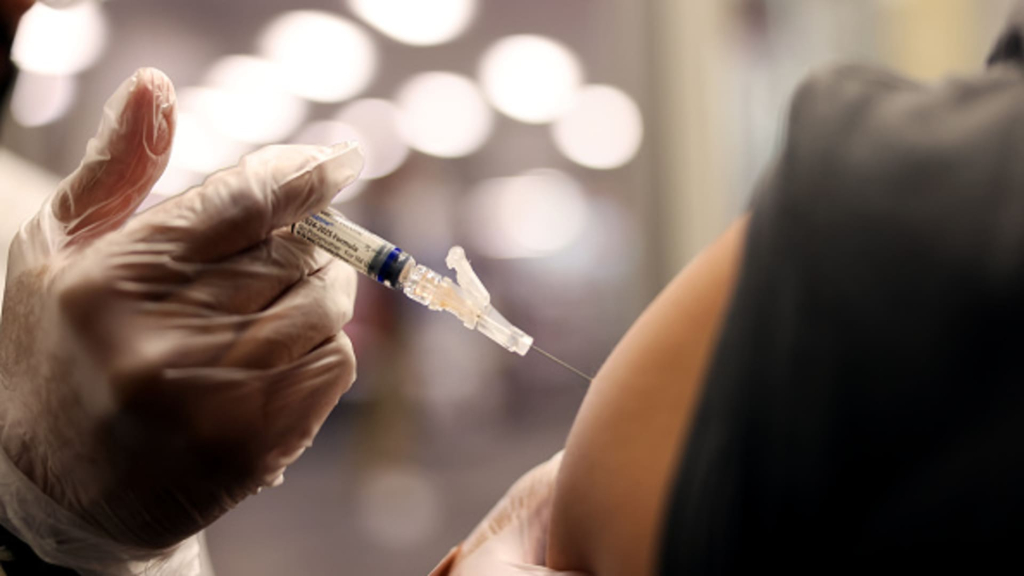On Tuesday, the Food and Drug Administration (FDA) unveiled revised regulatory guidance concerning future Covid-19 vaccine boosters, introducing more stringent approval criteria for healthy individuals.
The new framework mandates that pharmaceutical companies demonstrate the ongoing safety and efficacy of Covid-19 vaccines through comprehensive clinical trials before seeking approval for healthy adults and children. This is a significant change from past practices, where the FDA generally authorized updated Covid shots annually for the general population based on basic tests showing sufficient antibody responses.
The FDA emphasized that its updated approach strikes a balance between regulatory flexibility and adherence to high scientific standards. In the guidance document, the agency remarked, “The FDA will approve vaccines for high-risk persons and, at the same time, demand robust, gold-standard data on persons at low risk.”
According to a paper published in the New England Journal of Medicine by FDA Commissioner Marty Makary and Vinay Prasad, who leads the agency’s vaccine oversight division, the FDA will adjust its approval standards based on the risk of severe illness among patients.
This new guidance is introduced as Health and Human Services Secretary Robert F. Kennedy Jr., known for his skeptical views on vaccines, is reshaping national health agencies and U.S. immunization policies.
Specifically, for individuals aged 65 and older and for younger individuals aged six months to 64 with certain underlying health conditions, the FDA will accept immunogenicity data—that is, evidence showing that a vaccine elicits a strong immune response—as sufficient to determine that its benefits surpass potential risks. The FDA estimates that between 100 to 200 million Americans have conditions, such as obesity and mental health issues like depression, that place them at increased risk for severe illness.
Conversely, for healthy individuals aged between six months and 64 years without risk factors, the FDA intends to demand more substantial evidence through randomized, controlled trials that demonstrate actual clinical outcomes, like reduced infections or hospitalizations, before granting full vaccine approval.
“Our policy also balances the need for evidence,” stated Makary and Prasad. “We simply don’t know whether a healthy 52-year-old woman with a normal BMI who has had Covid-19 three times and has received six previous doses of a Covid-19 vaccine will benefit from the seventh dose.”
In approving vaccines for high-risk populations, the FDA will also encourage manufacturers to conduct post-marketing randomized, controlled trials involving healthy adults to further assess the vaccines’ efficacy.
The authors underline that the prevailing “one-size-fits-all” vaccine policy, which advocates annual shots for all individuals over six months old, is becoming irrelevant compared to approaches in other high-income nations that recommend vaccinations primarily for older adults or those at high risk for severe Covid-19 outcomes.
They raised concerns over the uncertain benefits of repeated vaccinations, especially among low-risk individuals who may have already developed some level of immunity from prior infections or vaccinations. Makary and Prasad noted that there is a lingering skepticism among many Americans and healthcare providers regarding the value of additional boosters, as evidenced by data illustrating declining vaccination rates for annual Covid boosters in the U.S.
Finally, they suggested that the routine recommendation of Covid vaccines has eroded public trust in vaccinations more broadly, including in established vaccines such as the measles-mumps-rubella vaccine. Nevertheless, they affirmed that MMR vaccines are “clearly established as safe and highly effective.”
Makary and Prasad will further discuss the new guidance during a virtual town hall event scheduled for Tuesday at 1 p.m. ET.


























